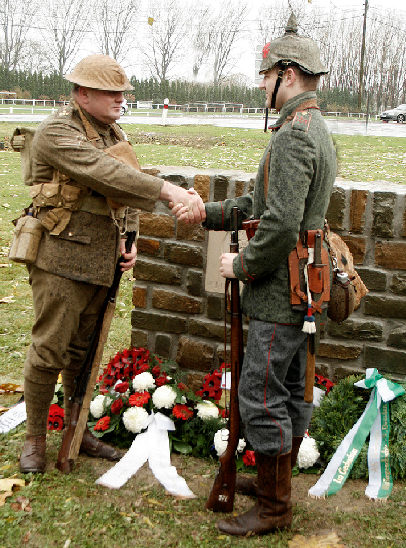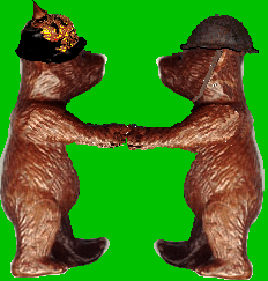AGM
The AGM was held at the end of November. Margaret Dyer has become Company Secretary, Mike Purchase and Richard Gilson have become Directors of our Company Limited by Guarantee. Richard Gilson was confirmed as Deputy Curator and the members of the Management Committee were voted back on board.
Membership fee - £6
The fee is being held at £6. Subscriptions are now due and we ask you to pay promptly by calling in at the Museum or sending a cheque to the Museum whose address is Market Street, Abertillery NP13 1AH. These are difficult times and fundraising is very important for keeping the Museum going so please pay as soon as you can.
Xmas Coffee Morning 22nd Nov
This was an enjoyable event with lots of chat and laughter. The Christmas trees and Christmas music added to the festive atmosphere as mulled wine and mince pies (or tea or coffee as preferred) were served in our Express Café. To add to the fun we had a Christmas Quiz devised by Mrs Enid Dean and a raffle. Thanks to everyone who helped and everyone who came.
100 Club November
No.15 Gwyneth Cooper £25
No. 104 Eileen Warfield £10
No. 20 Judith Williams £5
Fundraising November - £180
Get Well Soon!
We send our best wishes for a speedy recovery to Mrs Margaret Dyer who has just come out of hospital and to Mr Jack Brickell who has just been admitted to hospital. We hope they will soon be up and about and enjoying the Christmas festivities.
Wanted – Bookshelves or cases
Preferably tall and 2ft wide, please. Please call the Museum if you can help with this.
All Day Christmas Fayre – Tuesday 2nd December
We have chosen this day to coincide with Winterfest when the Museum will, in any event, be playing its part in helping the town celebrate Winterfest. We need items to sell on the usual range of stalls – crafts, sweets, chocolates, lucky dip, good bric a brac, jewellery, raffle items, bathroom items, good toys, Christmas goods etc. Please bring these along to the Museum. We would also be grateful for cakes nearer the day. Can you help with setting up or manning a stall or helping clear away? If so, please see Peggy Bearcroft. Please help, this is a big fundraiser for the Museum so try to come along and bring friends and family.
Diary Dates
Tuesday 2nd December – All day Christmas Fair at Winterfest
Local Voices
“A Visit to Ypres”
A few weeks ago my son and daughter-in-law took me to Flanders Fields. With the centenary of the commencement of the First World War there have been many tributes to the men who gave their lives. As well as the main cemeteries which are well-documented, as you drive along the roads you can see that there are many discreet signs denoting a small cemetery. They are all beautifully maintained and one feels that whoever looks after these small memorials do it with love. Sometimes there are perhaps just ten graves in the smaller cemeteries to be found along the roads.
We stayed at Ypres (I’ve heard it pronounced Wipers here back home) but there are several signs for Ypres e.g. Eipres Leimer.
Ypres is a wonderful town and the architecture is unique. I have not seen anything like it. I suppose that sort of architecture has gone out of fashion. I don’t know its origins, maybe Flemish.
We were told that during WW1 it was completely flattened and under an agreement after the war Germany had to restore it exactly as it was prior to the devastation. Germany finished paying for its restoration in 2011.
The main square is a lovely area, with lively cafes and Belgian chocolate shops. The main building was originally a series of small premises which housed 21 merchants of lace and textiles. They were apparently the best in the world. Now, however, these very small premises with two dozen small doors are not used for their original purpose. The museum is housed there, as well as a magnificent church. The remembrance ceremony at the Menin Gate was unforgettable.
Driving back to the port for our return journey, I was amazed at the miles and miles of flat country. I thought Flanders Fields was just that – some fields, but it is the whole region of northern Belgium. What a change nearing Dover, its white cliffs so high when just a few miles away the land was so flat. I did have a little feeling “it’s good to be back in England”.
The Roving Reporter
The Menin Gate
The Menin Gate Memorial to the Missing, located in Ypres, is dedicated to the British and Commonwealth soldiers who were killed in the Ypres Salient of WW1 and whose graves are unknown. The Last Post ceremony has been sounded each evening at 8 o’clock since 1928.
‘Thankful Villages’
This was the term coined in the 1930s to describe those villages which recorded no military fatalities in World War One. Such villages are surprisingly few in number – just 57 in England and Wales. The pattern of recruitment in WW1 was characterised by the system of ‘Pals Battalions’ comprising units made up of friends, relatives, and work colleagues – men who had been promised that they could train and fight together. It was a successful recruitment tactic but the scale of losses in some clashes with the enemy meant that thousands of men could lose their lives in a single day with the result that some small communities took disproportionately heavy losses. The ‘pals’ system was phased out in 1917 but by then the tragic loss of life had left a deep scar on many of the country’s small communities.
There are fourteen villages named ‘doubly thankful’ because they also avoided losses in the Second World War.
Book Review
With Christmas coming up, what better book to get than “A Child’s Christmas in Wales” by Dylan Thomas especially as 2014 marks the centenary of his birth. “… All the Christmases roll down toward the two-tongued sea, like a cold and headlong moon bundling down the sky that was our street; and they stop at the rim of the ice-edged, fish-freezing waves, and I plunge my hand in the snow and bring out whatever I can find ...”. Dylan Thomas's lyrical account of his childhood Christmases in a small Welsh town, featuring wolves, bears, hippos and Mrs Prothero's cat, has become deservedly famous.
Obituary
We were sorry to learn of the death of Mrs Betty Bennett who died last week aged 99. Mrs Bennett was the mother of Professor Madeleine Gray who has long had links with our Museum Society. Our older members will remember Mrs Bennett not just as Professor Gray’s mother but also her chauffeur, bringing her to our lectures. We also remember the time when, after a field trip to Mynydd Machen organised by Professor (then Doctor) Gray, the Abertillery group were invited back to Mrs Bennett’s bungalow for tea. She was always very fond of our Society and enjoyed her visits to us.
Poetry Corner
A Christmas Wish for All My Friends
by Winifred Sackville Stoner Jr.
While Christmas bells are chiming, oh, may there come to you
A dear little fairy, who's always good and true;
The little happy fairy, who drives away dull care,
And makes all things upon the earth seem ever bright and fair.
She'll whisper to good Santa to bring what you most wish;
So if you have been longing for a fine pudding dish,
She will not, as in by-gone years, forget and bring to you
Something that you do not want, though beautiful and new.
New Year Resolutions
Do you make New Year Resolutions? Did you know that people have been doing this for thousands of years? The ancient Babylonians made promises to their gods at the start of each year that they would return borrowed objects and pay their debts.
The Romans began each year by making promises, mainly to be good to others. These promises were made to the god Janus for whom the month of January is named. Janus was portrayed as a two headed figure who looks backward into the old year and forward into the new.
The medieval knights took the ‘peacock vow’ at the end of the Christmas season each year to reaffirm their commitment to chivalry.
At watchnight services many Christians prepare for the New Year by praying and making resolutions and there are parallels in a number of other religions.
We Need You!
The Museum needs people and money to keep it running successfully. You can help in all sorts of ways. Can you spare a couple of hours each week? If so, we can use your help. Are you in the 100 Club? Just £1 per month and all the excitement of the lottery. Are you a member? There are lots of ways you can help, please join us.
1st January – how it became New Year’s Day
The early Roman calendar consisted of 10 months and 304 days, with each new year beginning at the vernal equinox. Tradition has it that this system was created by Romulus, the founder of Rome in the eighth century. A later king, Numa Pompilius, is said to have added the months of Januarius and Februarius. Over the centuries, the calendar fell out of sync with the sun and so in 46 B.C. the Emperor Julius Caesar decided something had to be done. He consulted with the leading astronomers and mathematicians of the time and the result was the introduction of the Julian calendar. This bears a close resemblance to the more modern Gregorian calendar which most countries around the world now use.
As part of his reform, Caesar instituted January 1st as the first day of the year. This was partly to honour the month’s namesake, the god Janus, whose two faces allowed him to look back to the past and forward into the future. The Romans celebrated by offering sacrifices to Janus, exchanging gifts with one another, decorating their homes with greenery, and partying.
In medieval Europe, Christian leaders temporarily replaced January 1 as the first day of the year and instead chose days with more religious significance such as December 25 as the date of Jesus’s birth or March 25 which was the Feast of the Annunciation. Pope Gregory XIII re-established January 1 as New Year’s Day in 1582.
Auld Lang Syne
Should auld acquaintance be forgot
And never brought to mind?
Should auld acquaintance be forgot
And auld lang syne.
For auld lang syne my dear
For auld lang syne
We’ll take a cup of kindness yet
For auld lang syne.
The meaning of ‘auld’ is ‘old’ and the meaning of ‘lang syne’ is ‘long since’. The reference to taking a cup of kindness refers to the tradition of raising a glass with goodwill, friendship and kind regard. The song has five verses but I’m afraid there isn’t enough space to print them all.
MUSEUM MATTERS
Christmas Truce 1914
World War I had seen an initial German attack through Belgium into France, which had been repulsed by French and British troops at the Battle of the Marne in early September 1914. The Germans fell back to the Aisne valley, where they prepared defensive positions. In the subsequent Battle of the Aisne, the Allied forces were unable to push through the German line and the fighting quickly became a stalemate; neither side was willing to give ground, and both started to develop a fortified system of trenches. Both sides tried to outflank each other and by November, there was a continuous front line running from the North Sea to the Swiss frontier. In some places the trenches were only 30 or 40 yards away from each other and Fraternisation between opposing forces was not uncommon during periods of relative quiet. In a letter to his mother, dated 7 December 1914, Charles de Gaulle expressed dismay at such "fraternal" behaviour which, in his opinion, was the result of the long stalemate occasioned by the new trench warfare on the Western front. In 1914, north of Ypres, after heavy rain, British and German soldiers climbed above their parapets in full view in order to escape their flooded trenches, but did not attack one another; in another such friendly incident, the first days of December 1914 witnessed on some sections of the front regular periods of truce, when French and Germans exchanged newspapers and recovered their dead. a similar view to that of De Gaulle, the French General d'Urbal warned another high-ranking French officer that soldiers staying too long in the same sector will become to such an extent familiar with their enemies, that they had conversations and "visits".
Christmas 1914, there were several peace initiatives. The Open Christmas Letter was a public message for peace addressed "To the Women of Germany and Austria", signed by a group of 101 British women suffragettes at the end of 1914 as the first Christmas of World War I approached Pope Benedict XV, on 7 December 1914, had begged for an official truce between the warring governments. He asked "that the guns may fall silent at least upon the night the angels sang." This attempt was officially rebuffed.
A letter from Private H Scrutton, Essex Regiment, to relatives at Norwich. He writes: an exciting incident the other day. Our fellows have been in the habit of shouting across to the enemy and we used to get answers from them. “Good morning Fritz." (No answer). "Good morning Fritz." (Still no answer). "GOOD MORNING FRITZ." From German trenches: "Good morning." From our trench: "How are you?" "All right." "Come over here, Fritz." "No. If I come I get shot." "No you won't. Come on." "No fear." "Come and get some fags, Fritz." "No. You come half way and I’ll meet you, “All right". One of our fellows thereupon stuffed his pocket with fags and got over the trench. The German got over his trench, and right enough they met half way and shook hands, Fitz taking the fags and giving cheese in exchange.

No official truce but roughly 100,000 British and German troops were involved in unofficial cessations of fighting along the length of the Western Front. The first truce started on Christmas Eve, 24 December 1914, when German troops began decorating the area around their trenches in the region of Ypres, Belgium. The Germans began by placing candles on their trenches and on Christmas trees, then they celebrated by singing Christmas carols. The British responded by singing carols of their own. The two sides continued by shouting Christmas greetings to each other and there were excursions across No Man's Land, where small gifts were exchanged, such as food, tobacco ,alcohol, and souvenirs such as buttons and hats. The artillery in the region fell silent a British machine gunner, who was an amateur hairdresser in civil life cut the unnaturally long hair of a docile Boche who was patiently kneeling on the ground whilst the automatic clippers crept up the back of his neck. General Sir Horace Smith-Dorrien, commander of the British II Corps, issued orders forbidding friendly communication with the opposing German troops . Adolf Hitler, then a young corporal of the 16th Bavarian Reserve Infantry, was also an opponent of the truce. Football matches; Games played between teams of opposing armies include that of " 133rd Royal Saxon Regiment played a game against "Scottish troops".
An account of one truce, by Llewelyn Wyn Griffith , recorded that after a night of exchanging carols, dawn on Christmas Day saw a "rush of men from both sides and a feverish exchange of souvenirs" before the men were quickly called back by their officers, with offers to hold a ceasefire for the day and to play a football match. It came to nothing, as the brigade commander threatened repercussions for the lack of discipline, and insisted on a resumption of firing in the afternoon. Monument. A Christmastruce memorial was unveiled in Frelinghien, France, on 11 November 2008. Also on that day, at the spot where, on Christmas Day 1914, their regimental ancestors came out from their trenches to play football, men  from the 1st Battalion, The Royal Welch Fusiliers played a football match with the German Battalion 371. The Germans won 2–1. This was the true meaning of the traditional Christmas message of 'on earth peace, good will toward men.'
from the 1st Battalion, The Royal Welch Fusiliers played a football match with the German Battalion 371. The Germans won 2–1. This was the true meaning of the traditional Christmas message of 'on earth peace, good will toward men.'
HAPPY CHRISTMAS! Don Bearcroft, Curator
